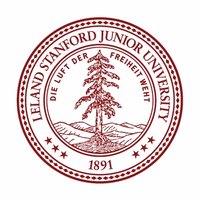
Possu Huang Lab
@possuhuanglab
Our lab uses experimental and computational methods to design de novo proteins | @Stanford
ID: 1587192071462363137
http://www.proteindesign.org 31-10-2022 21:18:25
80 Tweet
1,1K Followers
81 Following

New immunotherapy platform could increase potential to target cancer cells Possu Huang Lab news.stanford.edu/stories/2024/1… 🔬Read about related technology available for licensing: 23-287 “Using de novo protein design to target MHC-1 and MR-1 antigens” - techfinder.stanford.edu/technology/usi…

Our piece celebrating the Possu Huang Lab's clever approach to designing high-affinity, specific binders to peptide–MHC complexes 👏

Possu Huang Lab nature.com/articles/s4158…

Thanks Michael Birnbaum and lab for the great perspective on TRACeR papers!


TRACeR platforms more accurately recognize a wide variety of surface proteins expressed by cancer cells, which makes them easier to target with the body’s own immune system. stanford.io/4h0WzUx Possu Huang Lab #immunotherapy



I'm organizing a Keystone symposium, along with Liz Kellogg ❄️🔬 and Possu Huang Lab, on machine learning and macromolecules. Mar 23-26 in Keystone, Colorado. We have a great lineup and deadlines are coming up soon! keystonesymposia.org/conferences/co…

A framework for evaluating how well generative models of protein structure match the distribution of natural structures. Possu Huang Lab



Excited to share our joint work with Richard Shuai, Full-Atom MPNN (FAMPNN), a protein sequence design method that explicitly models both sequence and side-chain structure! 🧵 1/N

In new work led by Talal Widatalla and Richard Shuai, we make exciting progress toward functional molecular design by augmenting structure-conditioned protein sequence models with side chain information!


All-atom fixed backbone protein sequence design with FAMPNN Richard Shuai Talal Widatalla Possu Huang Lab Brian Hie


